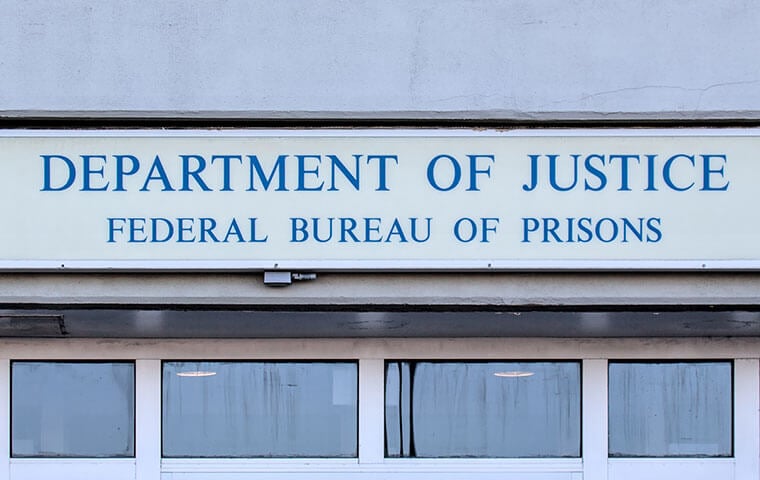 Author: We are calling for every piece of incoming prison mail to be scanned off-site for drugs—a measure that’s already proven effective. Image: yuriyt/Shutterstock.com
By: Jon Zumkehr, president AFGE local 4070
Author: We are calling for every piece of incoming prison mail to be scanned off-site for drugs—a measure that’s already proven effective. Image: yuriyt/Shutterstock.com
By: Jon Zumkehr, president AFGE local 4070Does another staff member have to die before the Federal Bureau of Prisons finally takes the crisis of drugs entering prisons through the mail seriously?
It’s now been a year since Marc Fischer—a longtime mailroom supervisor at U.S. Penitentiary Atwater and former Coast Guard member—lost his life after being exposed to contaminated mail, just before his planned retirement. Since then, nothing has changed. Dangerous substances continue to pour into federal prisons every week. Staff are left to fight this epidemic with outdated technology and little support from the Bureau.
This week alone, multiple drug-laced mailings were intercepted. Just two weeks ago, fentanyl was discovered again at Thomson Federal Prison.
In a recent incident, seventeen officers at Thomson were hospitalized after exposure to dangerous substances in the mailroom and required Narcan to survive. Days earlier, ten staff members at FCC Victorville suffered exposures over a four-day stretch. These are not isolated events—they point to a growing national safety crisis.
Since January 2024, Thomson has seen eight separate incidents where staff needed hospitalization after handling drug-tainted mail. The same risks that killed Marc Fischer last August are still present, with no meaningful improvements made to protect staff. And it’s not just a couple of locations: this is a national issue. Leadership on both sides has been asleep at the wheel while drugs pour into our prisons through the postal system.
The Federal Bureau of Prisons cannot continue to stand by while drug traffickers exploit our mail systems and put our staff at risk. These aren’t just statistics—these are real people with families who deserve to come home safe after work.
But the situation is getting worse, not better. The Bureau is moving to cut staff positions due to budget constraints. We have reached out to Director William Marshall about the ongoing staffing cuts under the Biden administration, which have forced Thomson to reduce visitation from five days to just two days per week and to lock down the prison an average of nine times a month. These cuts were made without any input from local leadership. While the boots-on-the-ground positions are being reduced, office staff for Central office In Washington DC have increased. These decisions undermine safety and pile even more work onto an already stretched staff.
We are calling for every piece of incoming prison mail to be scanned off-site for drugs—a measure that’s already proven effective. Federal prison overdose rates have soared by 600% in recent years, mainly because traffickers use the mail to smuggle drugs into facilities. Bipartisan legislation—H.R. 1046/S.1295, the Marc Fischer Memorial Interdiction of Fentanyl in Postal Mail at Federal Prisons Act—would require comprehensive screening of all legal mail. The bill, introduced by Representative Don Bacon (NE-02) and Senator Justice (R-WV), enjoys strong bipartisan support.
We are thankful for Representative Don Bacon and Senator Justice for listening to us and advocating for this commonsense solution to protect staff and inmates. A pilot program has already shown off-site mail screening works, but it was cut due to lack of funding. The mail system is still the main route for drugs entering our prisons. Without proper screening, we’re gambling with the lives of our officers.
We are calling on Congress to immediately pass H.R. 1046/S.1295 and ensure comprehensive mail screening at every federal correctional facility.
We’re not alone in this fight. On August 11, 2025, the Illinois Fraternal Order of Police State Lodge—representing more than 34,000 members—formally urged Chairman Jordan and Representative Raskin of the House Judiciary Committee to consider and advance H.R. 1046. The FOP called for urgent action to protect correctional staff and stop the flow of deadly drugs into America’s federal prisons.
How many more staff or inmates have to die before the Bureau takes real action?
Jon Zumkehr serves as the president of AFGE Local 4070, a union representing correctional officers and staff at USP Thomson. Zumkehr has been recognized for his advocacy on behalf of prison employees, particularly in improving working conditions, staffing levels, and safety measures. In 2022, he was named the American Federation of Government Employees (AFGE) 2021 Law Enforcement Officer of the Year for his efforts—including securing pay raises, retention bonuses, and direct hire authority to address staffing shortages at USP Thomson.
OPM Guidance Addresses Pay Issues arising During, After Shutdown
Financial Impact of Shutdown Starts to Hit Home; WH Threatens No Back Pay
Threat of RIFs Hangs Over Federal Workforce as Shutdown Continues
Surge of Retirement Applications Is in the Pipeline, Says OPM
OPM Advises Agencies on Conducting RIFs During Shutdown
Shutdown Stalls Hegseth’s Reforms on Two Fronts as Pentagon Accelerates Cuts
See also,
5 Steps to Protect Your Federal Job During the Shutdown
Over 30K TSP Accounts Have Crossed the Million Mark in 2025
The Best Ages for Federal Employees to Retire

